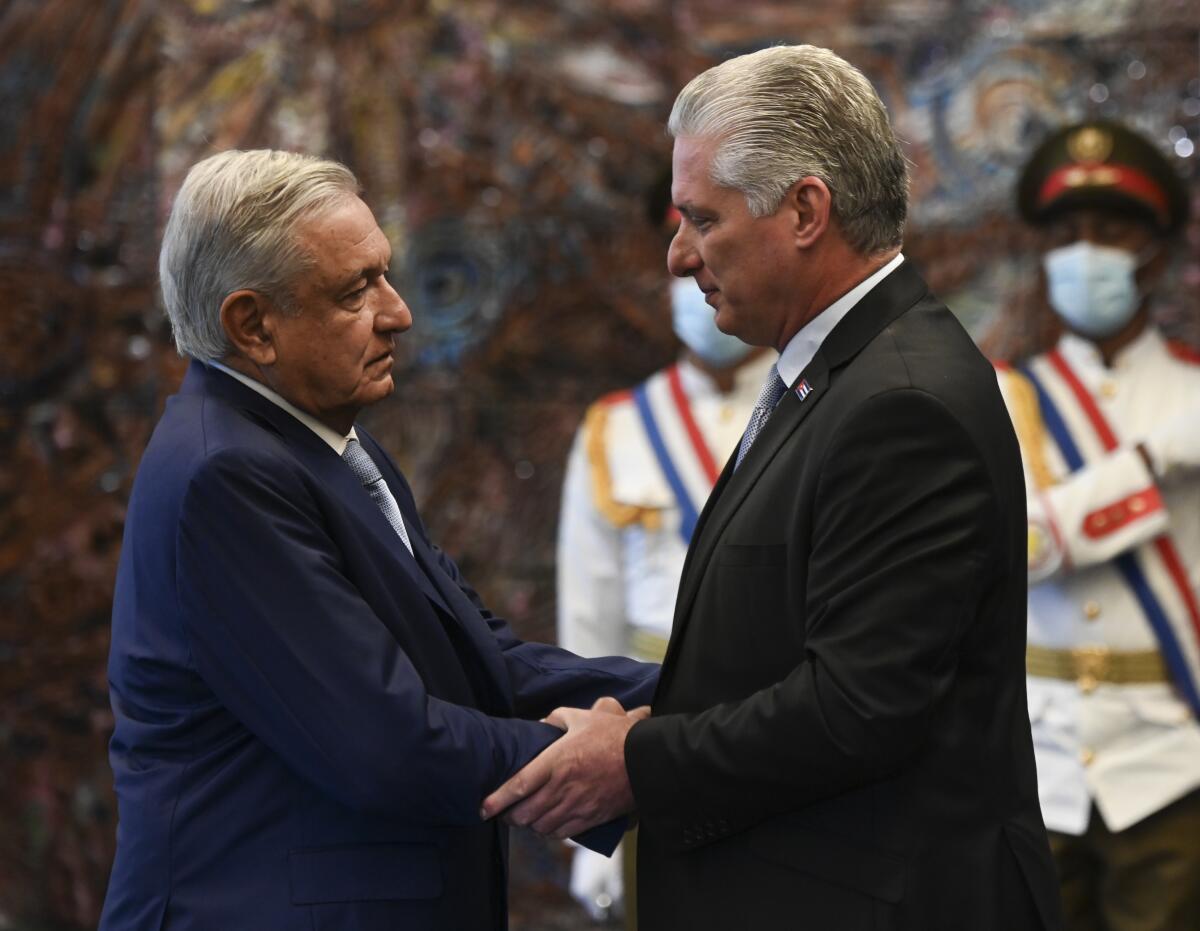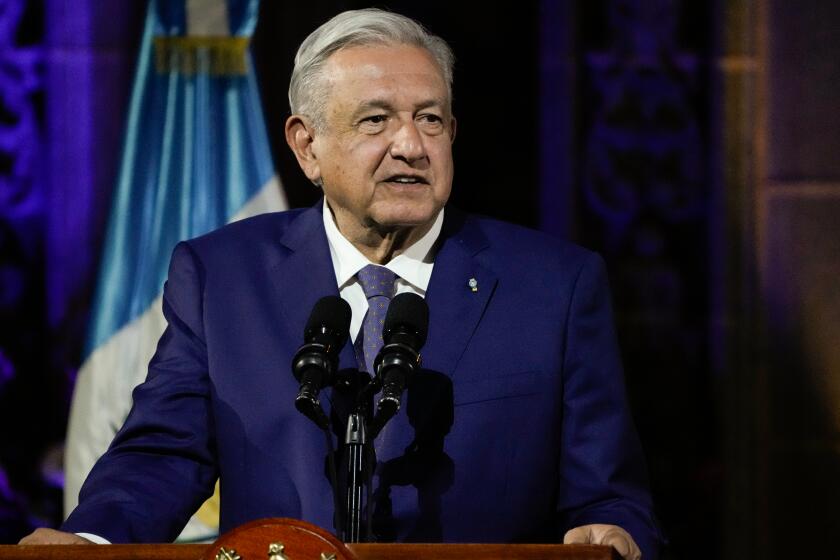Cuba says it won’t attend Summit of the Americas in L.A. after Biden administration snub

- Share via
WASHINGTON — The president of Cuba announced Wednesday that his country will not attend next month’s Summit of the Americas, a major conference to take place in Los Angeles, after the U.S. refused to extend a proper invitation.
The decision throws the summit, which is crucial to the U.S.’ ability to demonstrate its influence in the Western Hemisphere, into further disarray.
President Miguel Díaz-Canel said on Twitter that “under no circumstance” would he attend. His comments came after days of speculation and an attempt by the Biden administration to find a compromise that would absolve it of having to invite a “non-democratic” government — while avoiding the risk of infuriating much of Latin America.
When Brian Nichols, assistant secretary of State for the Western Hemisphere, told The Times and other media last month that the U.S. would not invite Cuba, the backlash was swift. Mexican President Andrés Manuel López Obrador threatened to boycott if the U.S. government, as host of the event, did not invite all the countries of the hemisphere.
A regional summit hosted by the U.S. without Mexico’s attendance would be seen as a major embarrassment for the Biden administration.
In addition to excluding Cuba, the administration plans to leave Nicaragua and Venezuela off the guest list. All have authoritarian governments that Washington considers to be in violation of the democratic spirit that the hemispheric conference is supposed to promote.
A brewing boycott over the invitation list to this year’s Summit of the Americas, planned for Los Angeles next month, has threatened to overshadow the meeting’s agenda.
After Mexico’s threat, a cascade of boycotts seemed to be in the offing. Several Caribbean countries balked at attending, though several have since backed off — Guatemala said it was staying home after the U.S. criticized its handling of official corruption cases, and the right-wing president of Brazil, the largest country in Latin America, said he also would not attend. A major ally of former President Trump, Jair Bolsonaro is angry at U.S. and other Western criticism of his handling of the depredation of the Amazon.
The Summit of the Americas is held every three or four years and was inaugurated in Miami in 1994, the last time that the U.S. was host. Cuba was excluded or chose not to attend most of the time until 2015, when, at the summit in Panama, Raul Castro famously met and shook hands with then-President Obama, opening the way to a historic thawing of Cold War-era relations between Washington and Havana that has since backtracked under Trump and with Biden.
Díaz-Canel, the first non-Castro to lead the communist-ruled country in more than half a century, lamented the U.S. position for failing to be “inclusive.”
“We share the position adopted by the leaders of the region who have firmly stated that all countries should be invited on an equal footing” to the summit, he said on Twitter.
“We appreciate the courageous and dignified standing adopted by the countries that have raised their voices against exclusions,” he wrote.
One idea that U.S. officials have floated, more so in Washington than in Latin America, was to invite a lesser-level Cuban official, potentially someone from the Foreign Ministry, and possibly as an observer instead of as a full participant. But Cuban sources told The Times that such an arrangement would not be acceptable.
Neither the White House nor the State Department responded to a request for comment Wednesday night.
Times staff writer Courtney Subramanian contributed to this report.
More to Read
Get the L.A. Times Politics newsletter
Deeply reported insights into legislation, politics and policy from Sacramento, Washington and beyond. In your inbox three times per week.
You may occasionally receive promotional content from the Los Angeles Times.












